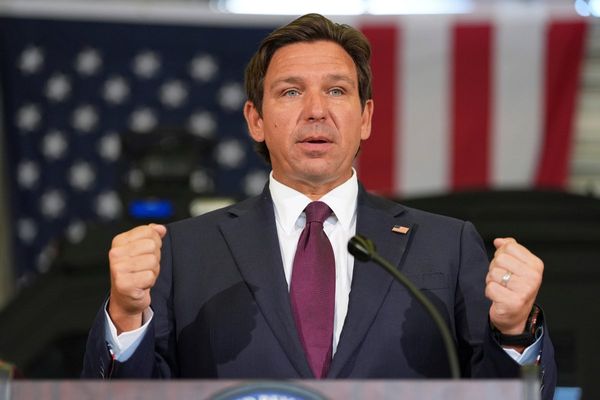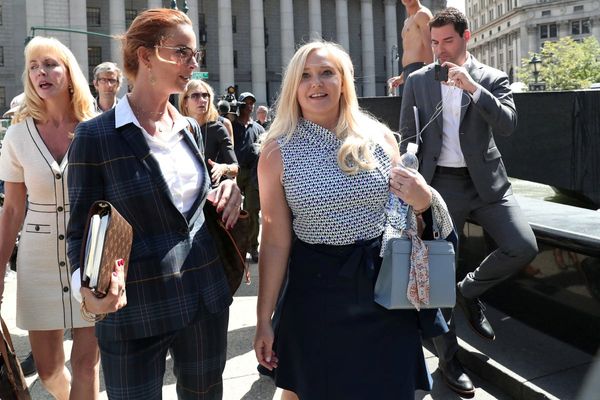
With the 2025 election campaign in its final days, Barrie Cassidy and Tony Barry share their observations on a campaign marked by Trump, global upheaval and a cost of living crisis.
Dutton ran ‘too many red lights’
The Trump effect has cruelled Peter Dutton’s campaign.
Nothing else – no other single factor – can explain such a dramatic collapse in support in just a few short weeks.
And having run so many red lights on the journey to election day, he has only himself to blame.
You can go all the way back to the voice debate when, in August 2023, Dutton went on 2GB and attacked the Australian Electoral Commission over the ticks and crosses issue.
The AEC is one of Australia’s finest pillars and provides us with a democratic system demonstrably superior to that of the United States.
He said of the AEC’s voting method (which had been in place for 35 years without any serious objections) that “you can’t have a situation where they provide favour to one side in a democratic election”.
“It’s completely outrageous … it just stinks to be honest.”
The tactic – casting doubt on the legitimacy of an election ahead of time – so unfairly, and in retrospect, so unnecessary both tactically and politically, had a sniff of Trump’s “stolen election” claims about it.
Had more in the media pulled him over and given him the ticket he deserved at the time, then maybe some of the future red lights would have been avoided.
But much closer to the election, he was still driving recklessly.
When Trump came up with an appalling displacement policy for the Palestinians on the Gaza Strip, Dutton described the United States president as “a big thinker … shrewd … a deal maker.” “The art of the deal,” he said, “was incredibly important to him.”
Then as the election drew closer, Dutton set up policies and rhetoric around indoctrination in schools, cuts to the public service, attacks on diversity and a Doge-style government efficiency unit.
Even after Trump shocked the world with his brutal take down of Ukrainian president Volodymyr Zelenskyy in late February, there were no adjustments.
Trump seemingly siding with Russia and blaming Ukraine for the war did nothing to slow down Dutton’s self-inspired momentum.
It took the American president’s outrageous tariffs in early April, setting off a trade war and threatening a global recession, to finally – four days later – cause the campaign to abandon some policies and try to build distance from Trump.
And yet when the lessons seemed to be learned, still this week Dutton labelled Guardian Australia and the ABC part of the “hate” media, another reflection of Trump and his dangerous attacks on a free press.
Dutton has failed in this campaign on so many fronts; first and foremost, on cost of living.
The Albanese government ended up embracing the issue, putting its record up against the opposition. The final humiliation was in Sunday’s debate when the audience gave Dutton just 16% support on the central battle of the campaign.
You can’t win an election by banging on about the problems and not providing the solutions.
And thankfully you don’t get rewarded for simply drawing on prejudices against “back room” public servants as if they are serving no worthwhile role. Yes they are “invisible” and voiceless by obligation, but almost all of them indispensable in reality.
And the campaign needed to get the sums right. Cutting 41,000 odd jobs from a Canberra-based public service of just 70,000 is ridiculous.
Too many red lights. And in the end when Trump went ballistic on so many fronts – well, more ballistic than usual – Dutton was left badly exposed. And under the constant glare of an election campaign the public was on to it.
- Barrie Cassidy
A shift to incumbency
Earlier in the campaign the critically important “soft voter” segment – voters who self report as likely or somewhat likely to change their mind before they vote – was nearly 50%, which is an atypically high number and reflected the major parties failure to energise and mobilise voters.
Our qualitative research shows that the mood among these voters is pessimistic, and that they view the campaign as only offering them “Band-Aid” solutions to their concerns around things such as the cost of living.
In 2024 the Coalition were able to leverage this grievance in the electorate and help create a mood for change. Albanese was seen by many soft voters to have the wrong focus and priorities and inflation remained political kryptonite to most incumbent governments.
However, at the beginning of 2025, Labor’s campaign started sharpening its messages while the Coalition started to drift in terms of being in the conversation around the economy. The federal budget in March also allowed Jim Chalmers to shape an economic narrative.
However, despite Labor’s improved political performance, the real turning point in this campaign was President Trump’s announcement around tariffs and specifically the share market’s response to his position.
In recent years globally and domestically, incumbency was a political liability. But with Donald Trump now creating absolute uncertainty, the stability and certainty that comes with political incumbency is once again an advantage.
Labor’s central campaign has cleverly capitalised on this changing sentiment that has underpinned voter considerations and defined the risk of change in these uncertain times.
The perceived risk that Labor has most effectively defined is its messaging around claims that the Coalition’s $600bn nuclear plan will mean cuts to Medicare.
Unlike most sequels, Mediscare 2.0 is possibly better than the original and it has underpinned a measurable collapse in Peter Dutton’s personal numbers as well as the Coalition’s primary vote which is mostly going to minor rightwing parties but then failing to all flow back to the Coalition on preferences.
In the final week of the campaign, the soft vote cohort has now fallen to about 20% which is still unusually high at this point of the campaign but it’s also further proof that voters are now landing on a vote intention.
The Coalition will need these remaining soft voters who haven’t yet pre-polled to break their way in an extraordinary flow of preferences. At this point it is very difficult to see Labor not forming government, with a majority still a live option.
But to paraphrase Warren Buffett, in political campaigns you never know who’s swimming nude until the tide goes out.
- Tony Barry
Barrie Cassidy has covered 14 federal elections as a political journalist, and two from the inside as a senior press secretary to then prime minister Bob Hawke. He is also the former host of ABC TV’s political discussion program Insiders.
Tony Barry is a former Liberal party strategist who has worked for Christopher Pyne and Malcolm Turnbull. He now runs political research company RedBridge Group and is a regular media commentator.







